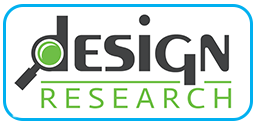“After searching for data on home décor styling trends, Assortment Styler was the only report with details on how Americans decorate their homes. The report gave us the competitive advantage across multiple titles of knowing the top home décor styles and historical and future trends.”
When we talk with prospective clients we sometimes hear hesitations to research like “we aren’t sure of the value/return of research” or “we can’t afford to do research” or “our development time tables are too tight to permit us to do research”. Our general comment to all of these remarks is that YOU CAN’T AFFORD NOT TO CONDUCT RESEARCH. Let’s explore each of these objections.
WHAT IS THE RETURN ON INVESTMENT IN RESEARCH?
“We aren’t sure of the value/return of research” is the weakest objection. Research is not a philosophy to be accepted or rejected. It’s a set of tools that reduce the risk of failure. Knowledge is empowerment. Given the choice, would any smart marketer want to know more or less about their market? Given the choice, would any smart marketer want to know more or less about their consumer? Given the choice, would any smart market want to know more or less about their competitors? When stated this way, it is hard to find an objection to the notion of preventing business failure. “Risk reduction” in other business contexts refers to insurance. Think of market research as insurance against failure. Unlike other forms of business insurance, market research is a unique, positive form of insurance that actually improves your business. Your fire insurance doesn’t do that.
TRUTH: Good research impacts the bottom line with increased sales and profits.
IS RESEARCH EXPENSIVE?
Which leads to the second hesitation; cost. What is success worth to your company? Is it worth as much as you spend on fire insurance? On worker’s comp insurance? Would it be worth $500 - $1000 per new product? Over the past five years we have charged clients an average of $500 - $1000 per item tested quantitatively with consumers. That doesn’t add very much to the cost of the total development of the product.
On the flip side, what does new product failure cost your company? How much does it cost to create a product concept, make and approve prototypes, manufacture them at various factories, commission initial runs, sell the product to retailers, make and ship the product and then, if it fails, how much does it cost to accept markdowns or returns and how do you dispose of old, weak inventory? Imagine the savings if just 10% of your failures could be turned into strong successes.
TRUTH: Research can SAVE you significant money in lost revenue, lost consumer value, lost brand equity and lost retailer faith.
IS RESEARCH TIME CONSUMING?
The third hesitation is also ungrounded. Research takes very little time in the product development cycle. Today most of what we test is virtual. Most clients create virtual versions of new products before they create the actual product. Nearly all of our testing involves presenting virtual versions to consumers in online formats. The research occurs concurrently with other aspects of the normal product development process.
TRUTH: When product testing, most of the time we have answers for you in 3 weeks from the time we receive the final proofs.



